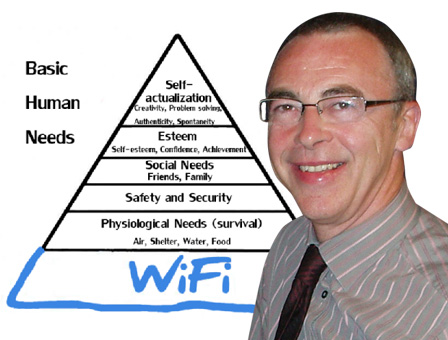Phil Preston on the difference between needs and wants
 I’ve been feeling a bit ambivalent just lately. I’ve always believed that marketing can be a force for good … but in the wrong hands it can also cause havoc.
I’ve been feeling a bit ambivalent just lately. I’ve always believed that marketing can be a force for good … but in the wrong hands it can also cause havoc.
This was brought home to me recently when I was watching the second episode of BBC Two’s fascinating series “The Men Who Made Us Spend”. The premise was that marketers and ‘Mad Men’ successfully use fear to create a ‘need’ for a product or service that doesn’t really exist. Their reporter cited numerous examples in health and beauty markets such as the invention of Halitosis by the marketing men at Listerine which induced public paranoia over bad breath and sold gazillions of gallons of mouthwash as a result. Other products to come under the spotlight included the dubious health benefit claims made for Vitamin Water and the insatiable demand for SUVs driven by an irrational fear of death by other people’s driving – in other words if you drive a big brute of a vehicle your chances of survival are enhanced (conversely you can do some real damage to the poor person in the other car).
So this got me thinking – is a need different from a want? The answer to the question is yes, most times, because a need is something you need but you don’t necessarily need a want! Are you still with me?
Let me give you an example. According to our good friend Abraham Maslow we all have a pyramid of basic human needs starting with the Physiological Needs that ensure our survival – air, shelter, water and food.
That’s all fine and dandy but marketers must take some responsibility for turning the need for food into a want for more and more food that is fuelling the inexorable rise in obesity, one of the biggest problems faced by most western societies.
And here’s another example – last month I wrote about the dark side of social media which paradoxically for some young people is making them feel increasingly isolated and alone rather than satisfying their basic human need to belong. The need is for friends and family – marketers have created the want, nay must-have, for Facebook and Twitter that both solves and creates problems. Incidentally I find the addition of WiFi to Maslow’s Hierarchy of Needs both amusing and sad.
So, with some justification, it could be claimed that the activities of those marketers lacking a social conscience are contributing to societal and global problems such as obesity, binge drinking, poverty and climate change.
However, I would counter claim that professional marketers who practice their craft responsibly within the CIM’s updated and re-released Professional Marketing Standards and the Institute’s Code of Professional Standards have the social conscience, insight, intelligence and creativity to solve them.
Nevertheless, unless marketers try to make changes soon I fear society’s problems could get worse before they get better. This prompts me to end with these prophetic lyrics from one of my favourite Stones tracks, written by Messrs Jagger and Richards:
“No you can’t always get what you want, you can’t always get what you want, you can’t always get what you want, but if you try sometimes well you just might find you get what you need”.

